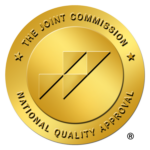Embarking on the journey of recovery from addiction is a courageous step towards a healthier and more fulfilling life. However, maintaining sobriety can be a challenging and ongoing process. Relapse is a common concern for individuals in recovery, but with the right strategies in place, it can be prevented or minimized. In this comprehensive guide, we’ll explore a variety of relapse prevention strategies to help you navigate the ups and downs of sobriety effectively.
Understanding Relapse
Before delving into prevention strategies, it’s crucial to understand what relapse is and how it manifests. Relapse is not simply a single event but rather a process that unfolds over time. It typically involves three stages: emotional relapse, mental relapse, and physical relapse.
Emotional Relapse:
During the emotional relapse stage, individuals may not be consciously thinking about using substances, but their behaviors and emotions set the stage for future relapse. Signs of emotional relapse may include:
- Bottling up emotions
- Isolating oneself
- Neglecting self-care
- Denying the severity of emotions
Mental Relapse:
In the mental relapse stage, individuals experience conflicting thoughts about using substances. They may reminisce about past use or begin planning how to obtain substances again. Signs of mental relapse may include:
- Cravings for substances
- Glamorizing past use
- Lying or deceiving others
- Rationalizing substance use
Physical Relapse:
Physical relapse occurs when an individual actually returns to substance use. This stage is often the culmination of unresolved emotional and mental triggers. It’s essential to intervene before reaching this point by implementing effective relapse prevention strategies.
Practical & Sustainable Relapse Prevention Strategies
Understanding and identifying personal triggers is a foundational step in relapse prevention. Triggers—such as certain people, places, emotions, or situations—can heighten the risk of returning to substance use. By recognizing these triggers, individuals can prepare and implement effective coping strategies to handle them with confidence and clarity.
Developing strong coping skills is essential when navigating through challenging moments. Techniques such as mindfulness, stress management exercises, and engaging in healthy outlets like physical activity or creative hobbies can serve as powerful tools in maintaining control during vulnerable times. These strategies help reduce the impact of triggers and cravings, supporting long-term recovery.
Building a supportive network is another key component of sustaining sobriety. Surrounding oneself with compassionate and understanding individuals—whether friends, family members, or recovery peers—offers ongoing encouragement, accountability, and a sense of belonging, all of which play vital roles in emotional stability and motivation.
Participation in therapy and support groups that are offered by professional recovery centers in NJ also strengthens recovery. Individual and group therapy can help uncover and work through underlying emotional issues, while programs like Alcoholics Anonymous or Narcotics Anonymous provide community, structure, and shared experiences that reinforce sobriety and resilience.
Creating a detailed relapse prevention plan ensures preparedness in the face of potential setbacks. This plan should include a list of personal triggers, coping strategies, supportive contacts, and clear steps to follow if relapse occurs. Having this framework provides a sense of control and direction during times of uncertainty.
Practicing self-care is fundamental to staying balanced and grounded. Regular sleep, nutritious meals, physical activity, and time for relaxation all contribute to emotional and physical well-being. Taking care of the body and mind increases the capacity to handle stress and maintain focus on recovery goals.
Setting realistic, attainable goals helps maintain momentum throughout the recovery process. Whether it’s achieving a month of sobriety or securing stable employment, celebrating milestones—no matter how small—fosters a sense of pride and reinforces commitment to the journey.
Lastly, staying connected to recovery resources keeps individuals informed and inspired. Engaging with educational materials, attending seminars, or participating in recovery workshops deepens understanding of addiction and strengthens resolve, empowering individuals to stay on the path of lasting recovery.
Our Addiction Treatment Center’s Relapse Prevention Program
Full of Life Recovery’s relapse prevention program is designed to provide individuals in recovery with the tools, support, and resources they need to maintain sobriety and prevent relapse effectively. Our program integrates evidence-based practices with personalized care to address the unique needs of each participant.
Upon entering Full of Life Recovery’s relapse prevention program, each participant undergoes a thorough assessment to identify their specific triggers, risk factors, and areas of vulnerability. This assessment helps our team tailor the program to meet the individual’s needs effectively.
Based on the assessment findings, a customized treatment plan is developed in collaboration with the participant. This plan outlines specific goals, strategies, and interventions aimed at reducing the risk of relapse and promoting long-term recovery. It may include a combination of therapy, support groups, educational workshops, and holistic modalities.
Our relapse prevention program incorporates evidence-based interventions proven to be effective in reducing relapse rates and supporting sustained sobriety. These interventions may include cognitive-behavioral therapy (CBT), dialectical behavior therapy (DBT), motivational interviewing, and mindfulness-based practices.
Peer support is a fundamental aspect of Full of Life Recovery’s relapse prevention program. Participants have the opportunity to connect with others in recovery through support groups, group therapy sessions, and recreational activities. This sense of community fosters mutual encouragement, understanding, and accountability.
Aftercare Planning At Our Marlton Drug Rehab
As participants near the completion of the relapse prevention program, our team assists them in developing a comprehensive aftercare plan to support their continued success in recovery. This plan may include referrals to community resources, ongoing therapy or support group participation, and strategies for maintaining sobriety in the face of challenges.
At Full Of Life Recovery Center’s drug rehab in Marlton, NJ, we are committed to empowering individuals to achieve lasting recovery and live fulfilling lives free from the grip of addiction. Our relapse prevention program offers a supportive and nurturing environment where individuals can gain the skills and confidence they need to overcome obstacles and thrive in sobriety.
Find Lasting Recovery In Marlton NJ
Navigating the complexities of addiction recovery requires dedication, resilience, and effective relapse prevention strategies. By understanding the stages of relapse, identifying personal triggers, developing coping skills, building a support system, and implementing a comprehensive relapse prevention plan, individuals can empower themselves to overcome challenges and maintain lasting sobriety. Remember, recovery is a journey, and every step forward is a testament to strength and perseverance. Contact our admissions team today to get the help you need to foster long-term recovery.





